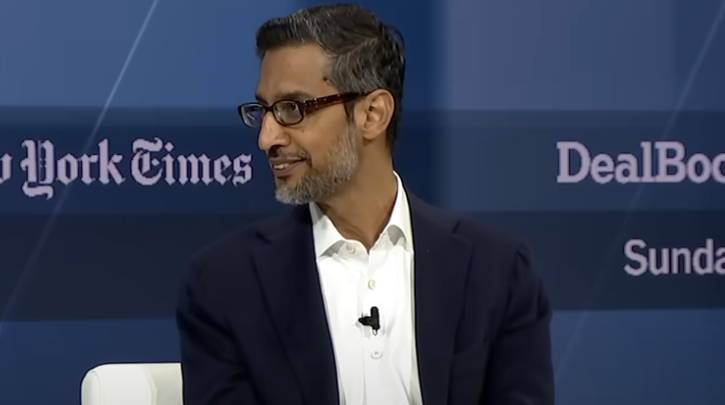Table of Contents
This full video is worth a watch. I clipped this part when Google DeepMind CEO Demis Hassabis was asked what he thought would happen to the web as AI develops.
He said,
“I think there’s going to be a very interesting phase in the next few years on the web and the way we interact with websites and apps and so on. If everything becomes more agent based, then I think we’re going to want our assistants and our agents to do a lot of the work and a lot of the mundane work that we currently do, right? You know, fill in forms, make payments, book tables, this kind of thing.
I think that we’re going to end up with a kind of economics model where agents talk to other agents and negotiate things between themselves and then give you back the results. And you’ll have the service providers with agents as well that are offering services and maybe there’s some bidding and cost and things like that involved and efficiency and then I hope from the user’s perspective, you have this assistant that’s super capable that you can… just like a brilliant human assistant and can take care of a lot of the mundane things for you.
And I think if you follow that through that does imply a lot of changes to the structure of the web and the way we currently use it…I think there will be incredible opportunities that will appear, economic and otherwise, based on this change, but I think it’s going to be a big disruption.”
AI is not just changing the web with AI Overviews and LLM chatbots. I believe every single business will have multiple AI agents. And every individual will use AI agents as well. For example, we have recently seen OpenAI's Operator in action and soon, we will see Google's Project Mariner.
Both of these tools are agents that can use your browser and take actions on your behalf.
How I picture Agents changing my work
Last night I awoke at 3 am thinking about these tools. I realized that soon, I'll be able to teach these agents to do things like proofread my newsletter, post it to my Mighty Network and then use my Kit (Convertkit) account to draft an email to my subscribers. Once finished, I can review the work, just like I would if an employee had completed it. This would save me loads of time. Similarly, I can teach my agents to find the recorded video transcripts of a client call and craft an action plan. It probably can even write a first draft of some of the research and strategy we've talked about doing.
I'll likely also be able to create an agent to help website owners diagnose the reasons for a traffic drop, based on documentation of how I do it. At first, it would likely be inaccurate, but I can teach it over time - again, kind of like I'd teach a new employee. Eventually, as the system learns how to respond, instead of people reaching out to ask me about traffic drops, their agent will connect with my agent. Or, perhaps I'll have an agent that I can sell to SEO agencies to take care of this part of their audit work for them.
Does this mean I no longer have incentive to create content for my SEO blog? On the contrary! I will have even more incentive to write about what's new and interesting in the world of online search because I will want to be continually giving my agent new insight.
How can SEOs prepare for a world where agents change the web?
We can't fully prepare for this world. This is kind of like asking people who were the first to use electricity to prepare for writing code, creating self driving cars, and creating electronic medical devices. We can't even conceive of how AI agents will change our lives!
Still, for now, here's what I'd recommend:
- Read Google's Whitepaper on Agents
- Read Google's documentation on building Agents with Vertex AI's Agent Builder. There are other ways to build agents, but I expect that one day every business will be able to create and train agents simply with natural language using Google's tools. However, right now there is a steep learning curve. It's worth taking the time to learn!
- Experiment with creating an Agent.
- If you've got the budget ($200/month) use ChatGPT's Operator (Unfortunately it is only available in the US for now, so I can't try it.)
- When Google's Project Mariner comes out, test it extensively.
- Start talking to your clients about what an Agent driven web might look like in their industry and thinking together about how they can be among the first to adapt.
I really do believe that we are entering a new age. Check out this quote from new head of Search at Google, Liz Reid:
“[“The company’s] mission is organizing the world’s information. But actually for a while what we did was organize web pages. Which is not really the same thing as organizing the world’s information or making it truly useful and accessible to you.” - Liz Reid, Google
And also, this is worth a read too:



